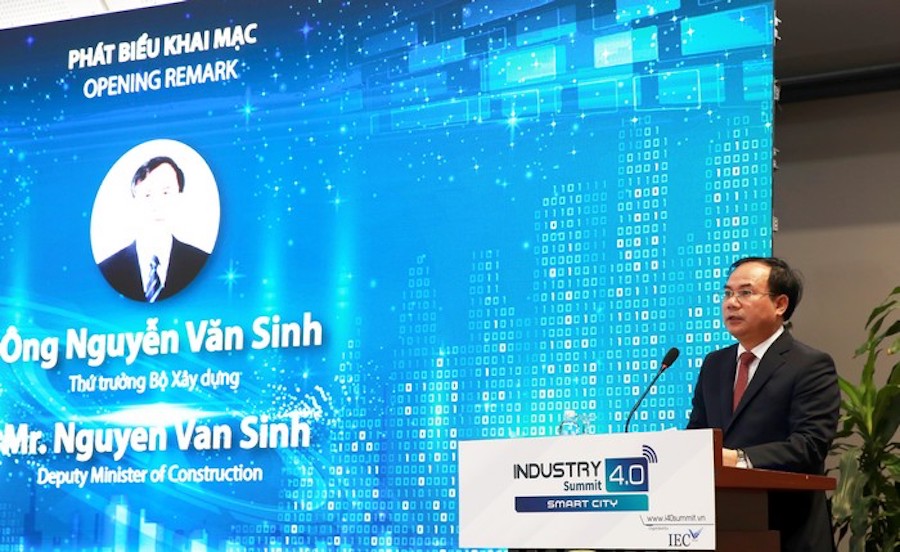Speaking at the conference on smart city within the framework of the Industry 4.0 Summit 2019, organized by the Central Economic Board yesterday, the representative Ministry of Construction (MoC) has announced plans for smart city development in Vietnam.
According to Sinh, there are currently 830 urban areas across the country, reaching an urbanization rate of 38.6 percent. Economic growth in urban areas ranges from 12 to 15 percent, 1.5-2 times higher than the national average.
Regarding smart city development, Vietnam aims to have at least 3 smart cities in all three key economic regions of North, Central and South by 2025.

The official affirmed that by 2030, the country must form a smart city chain in key economic areas, gradually connecting smart urban networks in the Southeast Asia region and worldwide.
Also at the conference, Nguyen Thanh Hung, Deputy Minister of Information and Communications, said 30 localities across the country, including Hanoi, Ho Chi Minh City, Da Nang, Can Thow, have approved and implemented smart urban development projects.
He noted that it is necessary to study carefully the characteristics of each locality to come up with effective strategies, to avoid spreading investment without positive results.
Mr. Hung said, the important issue of building smart cities in Vietnam is to thoroughly grasp the principle of building shared infrastructure, centralized data sharing, centralized monitoring and management to ensure investment effects. Besides, building smart cities must be linked with developing e-government.
Hung emphasized: "A city cannot be smart without a visionary leader and qualified human resources to plan, build, manage and operate that city".
Many international experts and scholars from Korea, Japan, China, Singapore also shared their experiences and lessons on smart city development after many years of implementation. The main issues mentioned by experts are the hard and soft infrastructure, the adaptability of people and leaders.
In addition, smart cities must be associated with sustainable development to protect a clean ecological environment and spaces, landscapes for future generations as well as to show overview of Vietnameses architecture, to preserve cultural specialties of the country as a whole and each region.


















